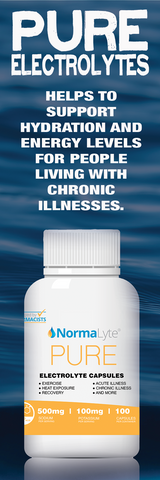Can POTS go into remission?


Postural Orthostatic Tachycardia Syndrome (POTS) is a complex and often debilitating disorder that affects the autonomic nervous system. Characterized by a rapid heart rate that occurs upon standing, POTS can lead to a range of symptoms, impacting the quality of life for those affected.
Understanding POTS
POTS primarily manifests as a rapid heart rate (tachycardia) accompanied by various symptoms, such as lightheadedness, fatigue, fainting, and brain fog. The hallmark of POTS is an increase in heart rate by at least 30 beats per minute (or a heart rate exceeding 120 beats per minute) within 10 minutes of standing up. This condition often leaves individuals struggling to perform daily activities that require standing or physical exertion.
Wondering if you have POTS? Our blog "The Poor Man's Tilt Table Test" can help you determine what your heart rate is and if you should discuss with your doctor.
Causes and Triggers of POTS
The exact cause of POTS remains elusive, and it is believed to be a multifactorial condition. Some potential triggers include viral infections, genetic predisposition, blood volume dysregulation, and autoimmune factors. Additionally, POTS can be secondary to other conditions like Ehlers-Danlos syndrome, autoimmune disorders, or small fiber neuropathy.
Diagnosing and POTS Management
Diagnosing POTS can be challenging, as symptoms may overlap with other medical conditions. A tilt-table test is commonly used to confirm the diagnosis, measuring heart rate and blood pressure changes in response to changes in body position.
While there is no cure for POTS, various treatment approaches aim to manage symptoms and improve quality of life. Lifestyle modifications such as increased fluid and salt intake, compression stockings, and exercise programs tailored to individual tolerance levels are often recommended. Medications, including beta-blockers, fludrocortisone, and midodrine, may be prescribed to help control symptoms.
Can POTS Go Into Remission?
You were diagnosed, but is it the end of the world? Can POTS, with careful management, essentially go into remission?
It is possible for Postural Orthostatic Tachycardia Syndrome (POTS) to go into a sort of remission for some individuals. POTS is a heterogeneous condition, meaning its symptoms and severity can vary widely among affected individuals. While there is no universal cure for POTS, some people may experience a significant reduction in symptoms or even a period of what could be considered remission.
Basically, the severity of your symptoms will lessen until they're almost unnoticeable. Keep in mind, that POTS cannot be healed completely; symptoms may unfortunately return or fluctuate over time.
How Do I Lessen Symptoms of POTS?
Several factors may contribute to the possibility of POTS symptoms declining:
Lifestyle Changes
Adopting certain lifestyle modifications, such as increased fluid and salt intake, regular exercise, and adequate sleep, can positively impact symptoms and contribute to a better quality of life. NormaLyte is often called a game changer for those who try it to manage their symptoms.
Medications
Some individuals may respond well to medications prescribed for POTS, such as beta-blockers, fludrocortisone, or midodrine. These medications can help manage symptoms and improve daily functioning.
Individual Variability
POTS is a complex condition with a variety of underlying causes and contributing factors. Some individuals may experience a natural improvement in symptoms over time, while others may find that their symptoms stabilize or diminish with age.
Treatment Response
The effectiveness of different treatment modalities can vary from person to person. Finding the right combination of interventions, including medications, physical therapy, and lifestyle adjustments, can significantly impact symptom severity.
Underlying Causes
Addressing any underlying conditions that may be contributing to POTS, such as autoimmune disorders or small fiber neuropathy, can also play a role in symptom management and potential remission.
In Conclusion
It's essential for individuals with POTS to work closely with healthcare professionals to develop a personalized treatment plan. Regular follow-up appointments and adjustments to the treatment plan may be necessary to address changes in symptoms or overall health. While remission is somewhat of a possibility for some, the focus is often on managing symptoms and improving quality of life.









Leave a comment